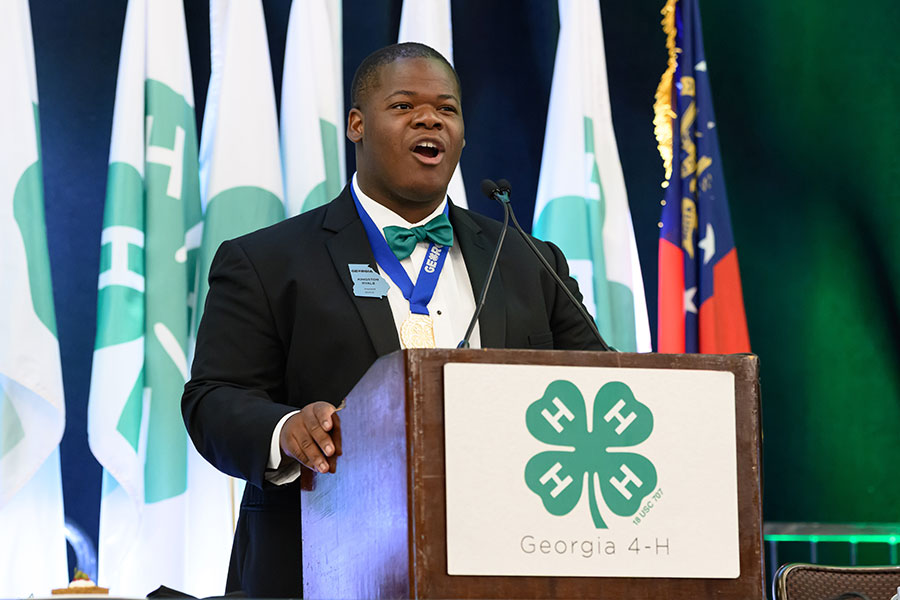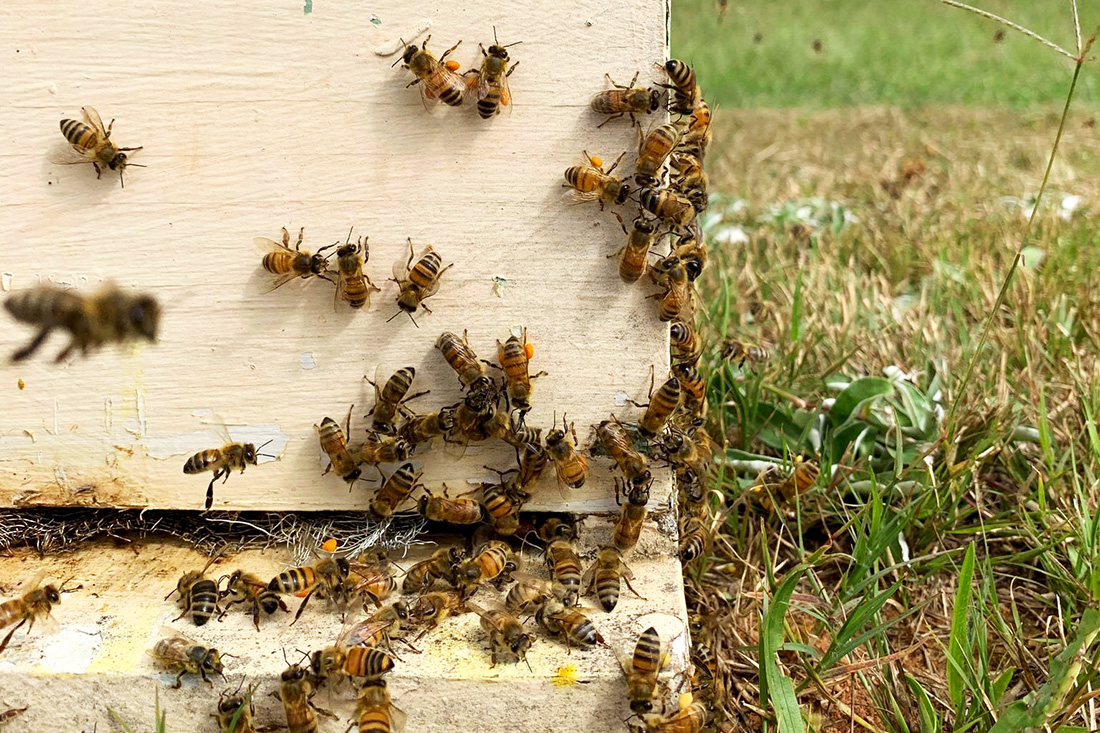By Faith Peppers
University of
Georgia
"I think if he bumps into this rope," Bazemore says, pointing out the best trap a 7-year-old imagination can dream up, "he'll make these cans rattle. It will either scare him off or alert us that he's here."
The thief isn't a bad guy, really. He's a two-legged robber on a mission to eat Jack's koi.
"My mom spotted him first. But then I saw him, too," he says. "He flew right over our fence and was sitting way up on top of our house. Just watching."
He's not your average thief.
He's a heron.
Heron horrors
"Herons are a very big problem in Georgia," says Tony Johnson, a horticulturist for the University of Georgia Research and Education Garden in Griffin, Ga. "There are horror stories."At the UGA garden he manages, he's all but given up on having fish in the water gardens. Herons are too persistent.
"Just the other day I was mowing grass and here he comes, using the turf plots as a landing strip," Johnson says. "I turned off the mower. As I stepped up the hill, he was sneaking down the path headed to the pond to get my fish."
Georgians like young Bazemore and experts like Johnson find herons a nuisance. Some, however, find them an expensive pest.
"The people who get upset are the ones with real expensive koi," Johnson says. "They can eat some pretty big fish."
It's not just missing fish that make herons unwelcome. They can wreck a pond.
"They aren't always efficient hunters," Johnson says. "They spear the fish. If you find scissor-like double stab holes in your pond liner, it was probably a heron that missed the fish. They can destroy a liner and really mess up a pond."
The main problems in these parts are blue herons and green herons, but they aren't alone. "Hawks can be a problem for pond owners, too," Johnson says.
Signs of trouble
There are ways to tell, Johnson says, if herons are sneaking around, besides the obvious (missing fish):Skittish fish. If fish are skittish or hide more than usual, that's a good indicator that a heron has been around.
Fish out of water. Fish will jump out of the water occasionally. But don't assume that's what happened if you see dead fish near your pond. Check for puncture wounds, the telltale sign a bird is visiting.
Keep an eye out. Herons and other predators usually visit in early morning or late evening when it's quiet.
Sick fish. Even if birds don't kill the fish, they can wound them in hunting attempts, setting up conditions for the fish to get diseases and die.
Protect fish by building a few hiding spots like overturned pots or shelves made of rocks that they can escape to. "You can cover the pond with fish netting," Johnson says. "It's a real pain, but it does keep leaves out of the pond, too."
Any time, anywhere
Herons are very active right now in Georgia. But they're common from early spring through summer and into late fall."It's a widespread problem and a topic of discussion at pond talks," Johnson says. "I doubt I've ever done a talk that someone hasn't asked me about them."
The protected herons usually land on large pond or lake banks and eat frogs and fish. But some ornamental water gardens are hard to pass up.
"If they're flying over and see a small, shallow pond full of nice fish, it's like putting up a neon sign that flashes 'Buffet. Open 24 Hours,' " Johnson quips.
For now, Jack Bazemore's buffet is closed. Picked clean.






